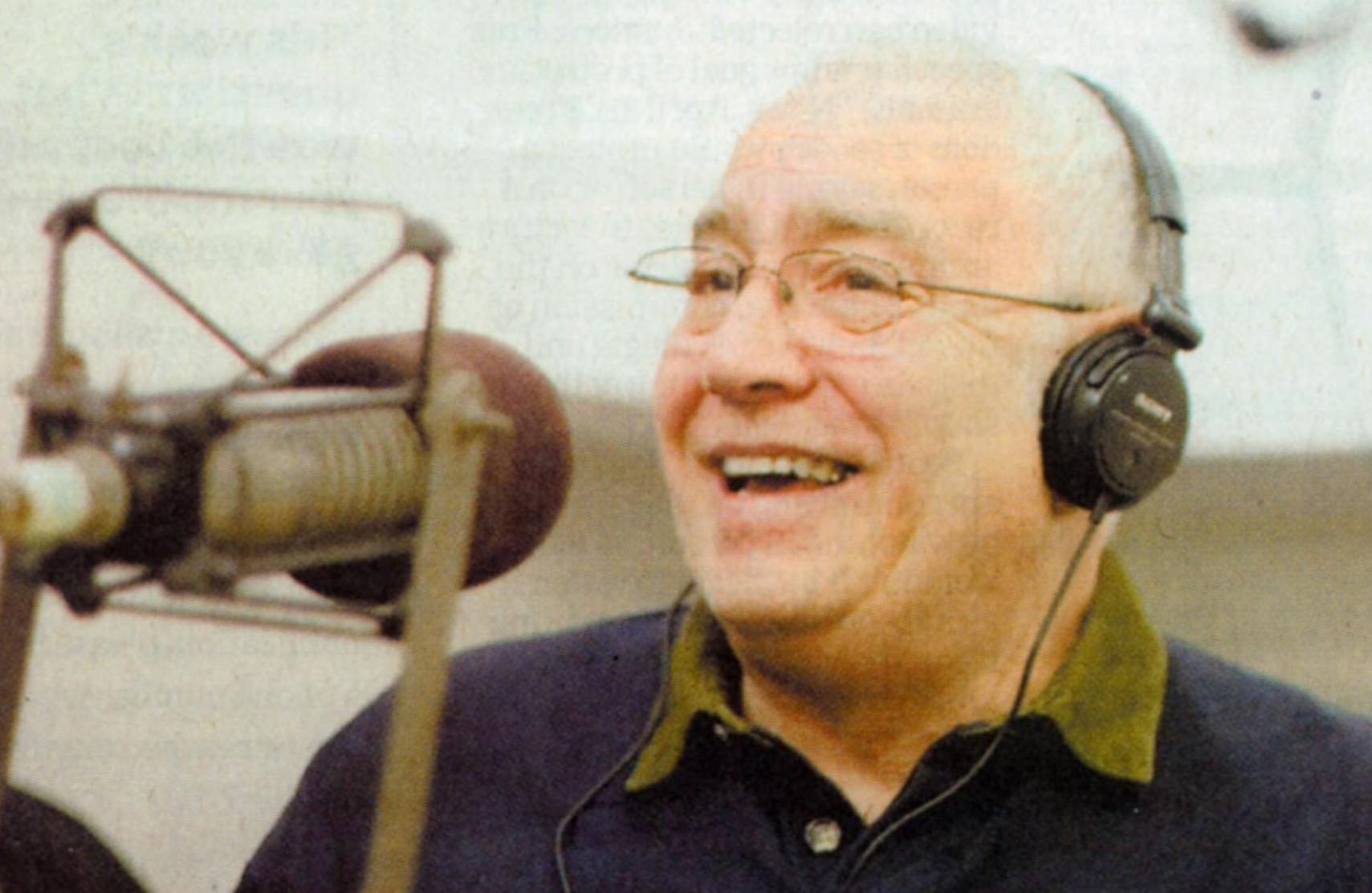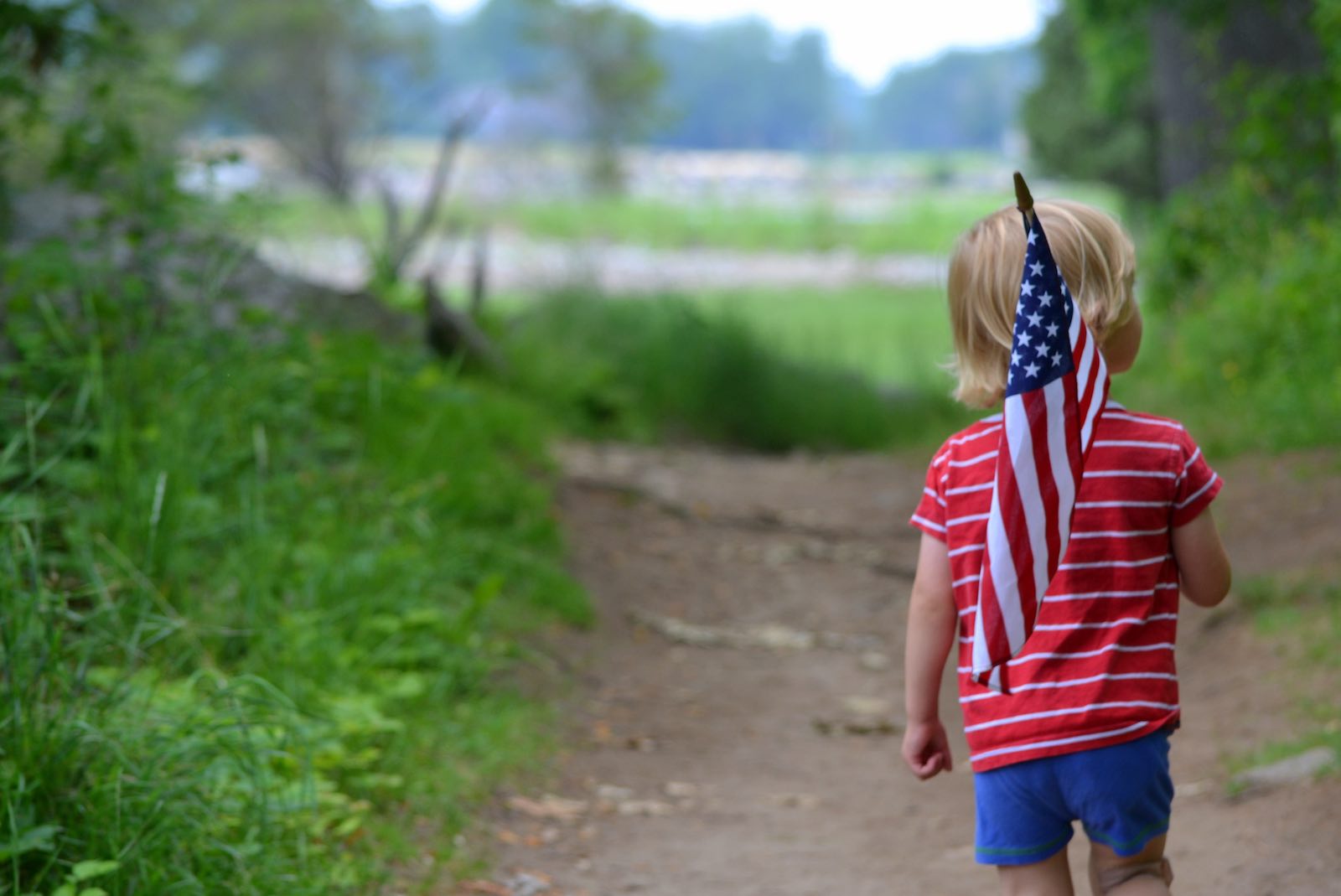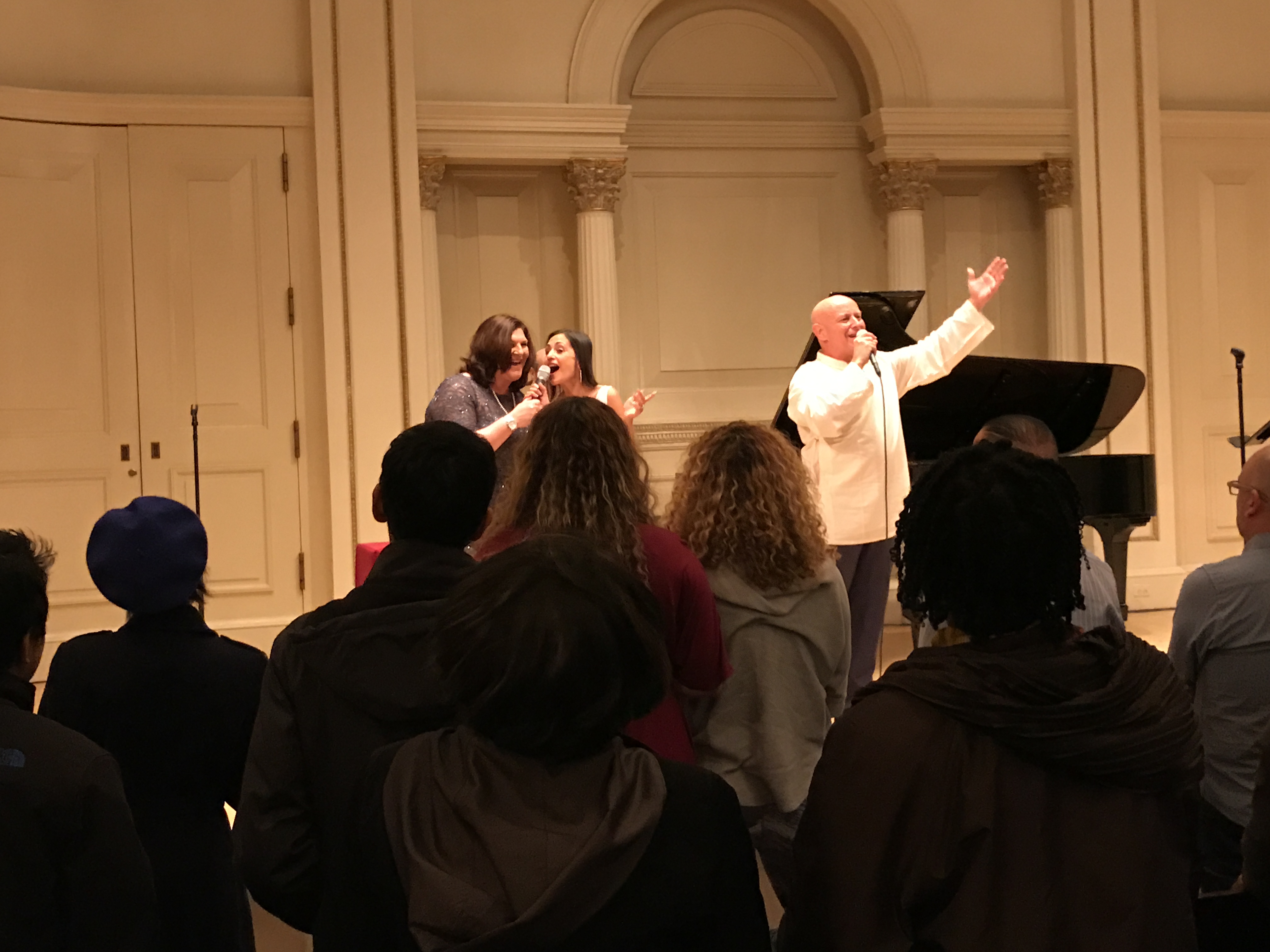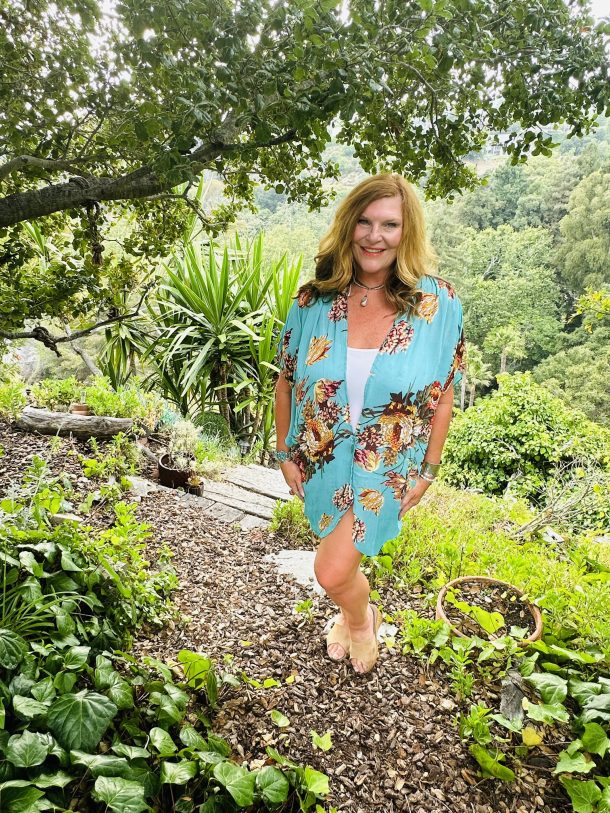There has been a lot of interest and commentary about my interview with Lauren Batchelder that was released on my podcast on December 16, 2016. In order to make this valuable information available to as many people as possible, I have had the interview transcribed.
Dr. Denise: This is the Dr. Denise Show. I’m Dr. Denise McDermott, an adult and child psychiatrist specializing in an integrated approach to mental health. I believe in prescribing the least amount of medication coupled with a comprehensive treatment plan. My goal is empower you to thrive and I take a multidimensional approach to wellness, not illness. You are not your symptoms. Call upon your best and highest self to embrace your mental health.
On this program you will meet many doctors, experts, and pioneers who have helped pave the way to shift the paradigm to get rid of the stigma of mental illness in our society. This show was created for those of you who would like new ways of thinking and understanding about mental health and helping your loved ones to thrive and cope in empowered ways.
Today I’m interviewing Lauren Batchelder about her experience over the last year with cyber bullying after she questioned President Elect Donald Trump at a political forum in October 2015. Lauren is a Junior in college at St. Anselm, she’s majoring in History and Gender Studies and she has aspirations to be a Human Rights Lawyer. Lauren was chosen out of 10,000 applicants to attend the United State of Women’s Summit at the White House in June of 2016 for her work promoting gender equality. She was also awarded The Spirit of Prudential Volunteer Award by President Obama for greater than 500 hours of community service and numerous other awards due to her outstanding volunteerism and civic mindedness. It is such an honor to have you on the show, Lauren.
Lauren: Thank you so much.
Dr. Denise: So, you know, as a child psychiatrist, I’m on the front lines of mental health and dealing with things, and you know, in just the last two weeks in my private practice, I’ve had two evaluations where one was a 10-year old that was suicidal and the other was a 16-year old that was suicidal and in both situations what triggered those types of feelings were cyber bullying that they were experiencing at schools.
So then when that was happening I was reading the news, and I reached out to you last Thursday (12/8/16 ) because I read The Washington Post article when Jenna Johnson interviewed you, entitled “This is What Happened When Donald Trump Attacks a Private Citizen on Twitter.”
So, Lauren, what made you come forward to the press after a year of silence?
Lauren: Yeah, well, the Washington Post had reached out to me before, but then when she messaged me a year later, I felt that it was the right time because there’d been so much drama, I guess, with the whole thing that I really just wanted to wait till things had calmed down and especially after the election where no one could get…cause there were a lot of people who had accused me of trying to rig the election, because I asked a question and I just felt it had been a year, it was time, so I accepted their interview request.
Dr. Denise:That makes sense and for everyone listening, what Jenna Johnson at The Washington Post described you know that that was the first interview that you had after a year after you had questioned Donald Trump at the Oct. 12th ’15 political forum when you had said to him, “So maybe I’m wrong, maybe you can prove me wrong, but I don’t think you’re a friend of women.” And he answered with his answer.
Lauren: Yeah..
Dr. Denise: Which was, “I love women, I respect women, I cherish women…” And then I saw, I was watching the interview, and you then asked, “I want to get paid the same as a man, and I think you understand that, so if you become president, will women make the same as a man? And do I get to choose what I get to do with my body?”
Lauren: um hum
Dr. Denise: And you did that with a questioning gesture, and then after that Donald Trump answered, but then the next day for everyone listening, President Elect Donald Trump’s Oct. 13, 2015 tweet was, “The arrogant young woman who questioned me in a such a nasty fashion at No Labels yesterday was a Jeb staffer. How can he beat Russia and China?”
So, Lauren, can you share with all of us what the first 24 hours was like for you after that tweet was released October of 2015?
Lauren: I mean, it was crazy. I couldn’t really escape it. I was telling someone the other day, just imagine getting hundreds of messages on your phone, but none of them are positive. So you open up Facebook, and you have all these message requests from people saying, “Oh, you’re ugly,” oh “We hate you,” oh “We want you to die.” And it was just 24 hours of being really just thrown into this.
Dr. Denise: I’m just taking a deep breath just thinking about that and I know from working with children and teens, and also adults it’s unbelievable when you are the receiver of that type of energy that is not positive, it’s very negative.
And so, when that happened, how did you, who rallied around you? What kind of mindset did you have to move forward? What were, how did you transition and kind of keep moving on?
Lauren: Un hum, well, at first I really just wanted to go to bed and think things over. And so that’s what I did at first. I spent the day, I spent a day in bed, and then I got up. I knew there were people that were going to support me. I mean my college, there were people that were very supportive, my parents were very supportive and I also just tried to keep things as normal as possible. I went to rugby practice, I still went to my classes, I mean you have to keep doing the same things when something like this happens because then they win and then you don’t get to do your normal routine and then you lose.
Dr. Denise: Yeah, so, did you just innately know how to do that? Is that a part of your hard wiring and your mindset?
Lauren: Yeah, I just really.. I love. I have a routine and I love doing that and I strongly believe that when bad things happen, you just have to pick yourself up and keep going. That’s kind of what I was raised to do, just my natural reaction.
Dr. Denise: Right… and when I work with children, teens, and adults in my practice, I think I mentioned this to you the other day on the phone, I asked you, “Have you read Harry Potter”? And it’s such a great analogy, I love the main villain, JK Rolling talking of Voldemort saying sort of, “He who must not be named.” And so with children and teens I ask them if they’ve seen that movie when I’m giving them coping strategies, especially younger children cause I’ve had you know 7-year olds that are bullied, 5-year olds that are bullied, all ages, so, you know, you were a young adult when this happened, but for young children I ask them if they’ve seen that movie and if they did they get all excited, and I say OK well let’s just.. One of the big first steps is what you did, Lauren, you didn’t give that kind of energy the power over you.
Lauren: Yeah.
Dr. Denise: And so, for children and teens I’ll say to them, do you want to just say “The name we shall not name?” And so then kind of moving forward, in therapy, it doesn’t mean they can’t bring it up, cause it’s their session, but it’s sort of setting the standard that, OK, I am not going to define myself by words that are unkind, and aren’t true about me.
Lauren: Absolutely. I mean, one of my favorite quotes is Eleanor Roosevelt’s that, We can only feel in inferior if we let it, like, no one can make us feel inferior without our consent. So, I can feel
bad, but that’s my choice. If someone wants to tell me that I’m ugly, I can either accept it, or I can just be like, you know what, I’m not going to listen to that negativity.
Dr. Denise: No, I think that’s fantastic, and I think it’s really handled well you know… I didn’t know about your story until it was released on Thursday night, and it sort of was… it caught me at a time where I was in the trenches just really feeling passionately about how important it is for all of our kids and youth and adults out there to be very mindful of how we choose our words, how we choose our thoughts, and there’s this degree of separation that happens with social media. Where people just think they can say whatever comes to mind.
You know, my husband raised our children… We’ve got an 18-year old, a 16-year old, and a 7.5-year old, that don’t put anything on social media that you wouldn’t want to see on a billboard on the 405 freeway. So what are your thoughts on that?
Lauren: Yeah, Oh, I agree, I feel that it is so easy to be brave on social media, I mean, if you don’t have to look someone in the face, and say something terrible, that’s so easy. I mean, social media has created this space where it is just, you can be mean, because you don’t have to face the consequences. So, I think that is something that is so important, I mean, someone always says to me, imagine your grandmother reading what you would say, or imagine You know, hat it would be published in a book tomorrow and everyone in the world can read it. You have to realize that it’s going to be out there.
Dr. Denise: You know, absolutely, and I think what happened was, technology moves so fast that as a society… You were born, this is like all you know… You were born with iPads and electronics… I wasn’t and so, back in… Interestingly enough, right when the internet really started taking off.. It started in the mid ‘90s, then in 2001 until now there’s actually been an increase rise in suicide across the board of all age groups, I think there’s only been one age group that didn’t have an increase of suicidal completions. And I know we would have to do a large scale study, it’s multi-factorial, but what’s happened is people are less likely to meet people in person, make good eye contact, really smile and have sort of the essence of the real relationship that’s not just through social media.
Lauren: Yeah, I mean, even I, when I was teaching in Kentucky, I mean you notice that your students…they’re more comfortable having conversations on via text message or through Facebook than talking to you face to face. I mean, even friends I know, whether it’s dating… They feel more comfortable asking someone out over text message than face to face. It’s definitely a problem.
Dr. Denise: Yeah, and you know what’s interesting, that’s one of the reasons why I just can’t even tell you how grateful I am that you’re on this call because it’s really amazing when things happen to us in life, whatever it is, I really believe when it looks like a crisis, or time of vulnerability, that’s the time we have the most ability to grow and have transformation. And so, I would love to hear a little bit about your year and all the success you had after this event. I think it’s really important that people realize that you can have something like this happen, but then you can have sort of a ripple effect of amazing transformation, or like continued progression of where you’re at.
Lauren: Yeah, I mean, I think just on a personal level, most of the time after something bad has happened to me, whether it’s a breakup, whether it’s something as simple as just doing poorly on a test, I find that I end up being more successful after these failures, because I want to do better. So, after this, I decided that I’m to graduate a year early, and then I kind of just decided that I was just going to do as much as I could. I went down to Kentucky, I taught for a week, I mean I got to go to The White House conference, I was able to do some more teaching, I applied to be the first student at my school to go study abroad in Norway. So, I just wanted to turn this into a positive experience because I had so much energy, I felt like I had to go do something, so I just wanted to transform it into a positive experience.
Dr. Denise: You know, that’s actually really amazing from a life lesson’s standpoint. Everything’s energy in the Universe and, you know I’ve been very interested…I really practice integrative psychiatry and I integrate the mindfulness, the mindset, but when we have the most amount of energy, if you look at quantum physics, too, you can actually if you have all that energy, let’s say hate energy, negative energy, fear energy that one can experience with bullying or cyber bullying, it’s actually an amazing opportunity if you handle that situation with grace and love, self love, and kind of a neutrality towards the negativity. That has an amazing power to catapult an individual into sort of a different realm of success and it’s just kind of like a progression on a spiritual level so I think it’s very important for people to know, that when we do have crisis whether it’s loss of a loved one, being bullied, it’s actually an opportunity to grow as a person.
Lauren: Oh, yeah. And I mean, I believe that everything happens for a reason, and so that’s why…to this week people have asked me, “How stressed are you right now?” And I mean, I’m not at all because I do believe that there is a plan, and I do believe that everything happens for a reason, and if I trust in the plan then I’m not going to worry about what people are saying about me or more negative experiences in my life. Because if it’s not good, then it’s not the end.
Dr. Denise: Yeah, so it sounds like you have a strong tenacity and a strong faith.
Lauren: Absolutely.
Dr. Denise: That’s amazing. So, have you have any children or teens that have reached out to you that are bullied that have sort of turned to you for support or guidance this year or have you been so low profile that you have just been off the radar and off the grid?
Lauren: I’ve tried to be as off the radar as possible. I mean, no one has reached out to me but I mean now that I am out there, I think that, I mean I have like 300 messages on Facebook that I haven’t gone through yet, but I’ve been getting letters from people telling me their stories, people tweeting like, “Oh, well I was bullied.” And so now that this story came out there are a lot of people saying, “Oh, I went through this,” or, “I was bullied.”
Dr. Denise: You know it’s really interesting, I know you’re about to go to Norway and I would love to have a discussion with you kind of off the podcast, but I just spoke to Simonetta Lein who has a Wishing w
Wall Foundation that she has to help people. You know, one idea, and this doesn’t necessarily have to be something …I don’t want to put this on your plate, but just for everyone listening is, you know sharing stories of how you kind of thrived after a situation where there was bullying is so empowering, it takes you out of the victim role and into the empowerment and feeling like, “Ok, we’re gonna talk about this.” Cause so many people are afraid to talk about it, for they are living in a place of fear, and fear of the bully.
Lauren: Yeah, and I think there’s also a stigma that comes with bullying, that’s like, “Oh, you were weak, you weren’t strong enough to either fight back, or you let them feel this way.” So, I feel like there’s a stigma that comes with bullying that I think also needs to be something that is discussed to let people know, “No, it’s not your fault if you’ve been bullied.”
Dr. Denise: Well, it’s interesting, with a recent bullying situation in our community, they have a safe school policy, and I think kind of as a, global, as a universe, and a s a country, and our schools, having really good protocols to nip these social milieu environments in the bud it’s super important because you know it’s… there actually are studies that have been done, I was actually just looking at all the literature, which I will talk about with one of my colleagues at an upcoming podcast, but you know, there are children, who, if they’re put in a situation where they’re seeing another kid bullied, even though you’d think they’re the person to stick up for someone, they don’t necessarily do it. It’s human nature that you are afraid you’re going to be the one who gets bullied next. So often times it creates a situation where people don’t even want their parents to know. I’ve had kids tell me in my office, Dr. Denise, don’t, please don’t tell my parents. Please don’t tell my parents. They’re afraid to even let their parents know they were bullied.
Lauren: Yeah, and that’s just so unfortunate because it’s so important to A) not just be a bystander, but to B) share your story. I think the more people that stand up that say, you know what, this has happened to me, and we can create a community and we can create a place where people can share their stories with other people who have gone through the same thing.
Dr. Denise: Yeah, and I’ve actually, there’s been things at some schools where they do sort of an anonymous, where you can actually leave a message with a school counselor saying, “I’m concerned about so and so.” Or I saw this happen, and then the school counselors can sort of bring kids in separately and really try to ascertain what’s going on so that someone doesn’t feel like they were sort of the tattle tale and that they’re going to get hit harder with unkind words.
So, you created your own study abroad program in Norway, I saw that and you also, I said number one you created this incredibly cool program for yourself in Norway, and number two I first called you on the call I was about to introduce you as a sophomore at St. Anselm and now you’re a junior. Can you tell us all about that?
Lauren: Yeah, so I mean, I’d always wanted to go to Norway. So, I had just decided that I wanted to create the study abroad program because that wasn’t an option. So, starting in June I had to start the paperwork and it wasn’t until the end of the summer where they’re like, where the school’s like, “OK, you can apply.” So, it’s been almost 6 months of preparing for this trip, and then I’m a Junior because after this whole thing there were a lot of people that messaged me like, “You’re an idiot,” all this negative stuff, and I was like, “Yeah, OK.” And so I had some extra credits so I decided that I was just going to push forward and skip a year.
Dr. Denise: Good for you. You’re like ok, I’m going to, I’m going to take the energy of all this and I’m going to shift it, and I’m going to go and do something exciting, and I’m going to use this energy to feel empowered.
Lauren: Oh, yeah.
Dr. Denise: And, so, can you tell us what you’re going to be studying when you’re in Norway?
Lauren: Yeah, I’m going to be doing a lot of gender equality, I’m taking a bunch of classes, on like gender in Nordic countries. I’m actually taking a class at the law school on Human Rights and Gender Studies which I’m really excited to be able to do that. And then I’m just going to take a class on Vikings, because I feel you can’t go to Norway without taking a class on Vikings.
Dr. Denise: I feel like you got, you’re sort of in touch with your own inner Viking chick based on everything you just described. I just pictured you all in like Viking gear, very empowered. So, I have a question, if you could, with this, with what’s happened, I know I’m not going into the specifics because everyone can read on CNN, The Washington Post, and I think it’s very important for people to know, as a Doctor, when I’m assessing people that have had bullying, I really let people tell in their own words their story… Because if we keep saying the statements over and over that have been unkind to us, we’re actually creating sort of a trauma loop in the brain, and so I’ve specifically not said any of the words people can read on media because I am coming from a place of healing, and that this call that you’re doing is really an example of how to be empowered.
So, I just want everyone to know out there if you keep repeating your story over and over again of trauma, it’s ok to share that, but then you’re supposed to use tools and there’s cognitive therapy, there’s meditation, there’s forgiveness, there’s all kinds of ways you can get through bullying. But I have to tell you, every time I see someone interviewed on CNN or Fox News, or some child that’s been abused, or teen or adult and they repeat their story and all the details, if it was their idea to do it and they want do it and it was healing, that’s ok, but I think people need to be educated that when you keep talking about it you’re actually.. you can put yourself back into a fight or flight zone and you can actually re-traumatize yourself by talking about that.
So, how have you been able to when you’re telling the story, how have you coped before each interview? The recent interviews that you’ve agreed to do.
Lauren: Yeah, I mean there are some parts that are so terrible that I just don’t even talk about because I have no need to relive some of those moments. I mean, there’s some things that were said to me that I will never repeat, ever again just because it’s terrible. And so I think I need to pick the stuff that I’m ok with. I mean, especially with The Washington Post interview, I just thought about the stuff that I was ok with, the stuff that didn’t bother me. I mean, when I tell the story now, it doesn’t bother me. I don’t feel anything, but I pick and choose what I said.
Dr. Denise: No, I think that’s really, really smart. Did you get any guidance or you just naturally just doing this?
Lauren: There are some people who I go to for advice, but there’s a lot of it that just, we’ve been like, “Ok, let’s just feel the right thing to do.”
Dr. Denise: Well, I just, that’s why I was so, I have to tell you, I read the beginning of The Post article and I sort of connected right to how strong you were, I could feel it when I read the story and I have, I’ve seen 40,000 hours worth of patients and so I feel very connected and I was like, “Oh, my gosh, this woman is so strong and so brave.” And I never imagined, I just found myself, I didn’t even think, I just reached out to you, it think it was an hour after the story broke. And I was sitting on my chair after a week of, you know I really like to release when I deal with people who have gone through suicidal thoughts and you know by the way those people I mentioned earlier in this interview that were dealing with suicidal thoughts they’re now safe, they have their families supporting them, they’re OK.
And so, as a doctor, it was so near and dear to my heart, Lauren, when I read your, I’m actually about to just get teared up here. Like, in a very protective way for all children, and I was like Lauren is sharing her story, she is such a strong resilient woman, and I was very impressed with the way you’ve been able to handle this year.
Lauren: Well, thank you so much.
Dr. Denise: And do you have any thoughts? I know you’re going to go to Norway and have an awesome semester, maybe have you had any thoughts about making a difference on sort of the use of social media for positive messaging and bringing good and kindness to the world? Do you have passion for that after this has happened?
Lauren: Oh, absolutely. I mean, when I get back I would love to do something. It’s funny cause I know Melania Trump wants to really focus on cyber bullying, so I would love to just be able to help out with that. I mean…
Dr. Denise: I can’t believe… you know, you rock. That was actually something I was going to ask you but I just wanted to see if you were going to bring it up. I just, I was like, “Ok, I’m going to let Lauren bring up what she wants to bring up.” Yeah, I thought about that. I think I’m just going to tell you, to me, this is an opportunity, when these things happen, if we’re trying to be united as a country, we have to kind of put this election behavior past us and you know we’re not even at the inauguration day so I know a lot of people have feelings about that, but in general, the bottom line is we have an amazing country, I mean this is the United States of America.
Lauren: Exactly.
Dr. Denise: We need to stand together, we need to do it better, we need to heal. And so, what are your thoughts about that with Melania? I thought the same thing, I thought, wow, maybe Lauren and I, and I don’t know, I know you’re on your path, but we can talk outside of this but I think protocols need to be set up. You know, I know it’s a free society, freedom of speech I respect that, but almost like kindness and wellbeing protocols for appropriate use of social media. What are your thoughts about that?
Lauren: Yeah, I mean, someone posted something that said, “Make America Kind Again” and that really resonated with me and I think it’s important to work together with people just across the country to focus on that, especially when this election was so negative. It was just so terrible, and even now it’s just this negative cycle, I mean, it really just needs to be broken.
Dr. Denise: Yah, I agree with you, in fact, I was so passionate about wanting to change the way people view mental health. I’ve been in private practice here in Southern Cal, but I thought it’s time to take what I know and give some tips and tools out into the world and just do it in really kind of a gracious way. And one of my image assets is you know can you imagine if we raised our children to think about leaving their kindness imprint on this planet.
Lauren: Yeah, oh my gosh, that’s wonderful.
Dr. Denise: Can you imagine? Can you imagine with that kind of thinking, “What can I do today to be kind?”
Lauren: Yeah.
Dr. Denise: And so, .. go ahead.
Lauren: Yes, we definitely need, that needs to be the focus instead of, “We need to be successful. We need to do this.” I think kindness is the most important thing.
Dr. Denise: Yeah, and also that realizing we do have enough resources on this planet and that we need to come up with solutions to make people realize that cause I think what’s really happened is we can use social media to create a ripple effect of fear, or we can also use it create a ripple effect of kindness and love.
Lauren: Absolutely.
Dr. Denise: So, did you think about reaching out to Melania Trump when you brought that up? Or what were your thoughts about that when you got back from Norway?
Lauren: I mean I have thought about it. I mean, I feel like, I think people are really terrible to her as well, even though she, I mean she’s never said anything like that at all. I mean, she went on TV and was like, “We need to be kind, we need to stop cyberbullying.” And people really made fun of her, like, “Oh, look who you’re married to.” But I think that’s something that she genuinely wants to do, so I would love to work with her.
Dr. Denise: Oh, Lauren, you’re just such a sweetheart. I think it’d be awesome. No, honestly, I believe that, too, because your thought process is let’s stay neutral everyone. Like, let’s not, you know, she didn’t, those words didn’t come out of, she is not the person. She didn’t say those things. So it’s kind of like, let’s remember, she’s a mom, and she’s in this role, and I think that’s a really great point that you made. So, I appreciate that you did that.
Is there any other tips or tools like kind of that you’d want to leave us with on how to cope when…? I’m going to even say, you know what I want to tell you, this is very important, Lauren, even the word bullying, or cyber bullying, when you hear that word, doesn’t it give you a certain sense of vibration when you say that word out loud?
Lauren: Oh yeah, absolutely.
Dr. Denise: Yeah, so to me, when I am in session with people, I say we are not even going to talk about the word bullying, or cyber bullying, we know that’s what it is by definition is. But then it’s more like unkind words, like what are we going to do to deal with when people are being unkind? So take a more neutral approach and shift it into kindness. So I think more kindness curriculums need to happen. And I think you’ll be happy to hear this, I don’t know how it was for you growing up, but at my son’s elementary school here in Manhattan Beach, every Wednesday, cause they’re really trying to promote character, they actually give out acts of kindness award for the week.
Lauren: Oh, that’s awesome.
Dr. Denise: Yeah, they have a little cute, on Wednesdays like, I call it RaRa Day even though it’s like Pacific Day it’s like my funny way of saying it. But each child, in each grade, they pick one or two children that have showed sort of over the top kindness and they get an award in front of the school. You say the pledge of allegiance, you sing a song about your school for school spirit, and then they also go and they reward different classrooms based on the recycling, behavior, and also kids get awarded if they’re walking to school and being really fit.
Lauren: Oh, that’s great.
Dr. Denise: Yeah, so I’m thinking that, with that whole idea of reaching out and changing protocols with Melania or whoever’s gonna, or the group or the tribe of people who want to change things from “unkind words to kind words on social media.” I think it’s really important, there are some models that are set up and I think just simple things of smiling more, making eye contact, saying please, saying thank you. If you’re about to say something in an email that doesn’t seem kind, maybe pick up the phone so you can actually hear someone’s tone of voice. What are some thoughts you have about that?
Lauren: I mean, I think we just need to connect because I think people forget that we’re all human. And I think when we remember that, and we remember that everyone has feelings. Everyone has their own opinion, I think it’s easier to be kind, and if you just keep kindness in your, on your brain. I think it’s so much easier to be like, I try everyday to compliment at least five people. And I think once you start doing that, then it’s just, it’s easier, you kind of create this cycle. Or I’ll try to like pay for someone behind me in line and I think, if you do little things, then you start this cycle in your life.
Dr. Denise: I agree with you, and another wellness tip is, when we start our day before we even get out of bed, sometimes right when the alarm goes off, and we’re like, “Oh no, do I have to get up…” But if you just stay and pause, and just think about one or two things you’re grateful for, so if you start your day in a place of grace and gratitude, and then you follow it up with a kindness mindset. So much of mental health, I’m not saying there’s not a real diagnosis that people need to come see me, but from a prevention and a wellbeing and sort of a societal mental health wellbeing, the tips of being grateful, and being kind, it kind of is that simple, and I think we forget that.
Lauren: Yeah.
Dr. Denise:So…
Lauren: Oh, yeah, it’s just even taking five seconds to be like, “Wow, I’m grateful for this beautiful day.” I mean the more that you’re grateful for, it’s just so much easier to be nice and to just change your mindset.
Dr. Denise: Yeah, I think so. Well, I’m really excited that I couldn’t even believe it when I reached out to you Thursday night and in real time you got back to me. Did you kind of, how did you decide to reach back or what in that moment when you and I were communicating what were you thinking and feeling?
Lauren: I mean I go by my gut a lot, and my gut was like, “This is a good thing to do.” It wasn’t going to be this national like, “Hey, come on CBS.” Like, I don’t want to the publicity anymore in that sense. Now I want to help people, and so I feel like I can help people more through this medium. So, I was just so excited that you reached out to me.
Dr. Denise: Oh, you know what, me too, I have to tell you it was really cute. You know how normal people, like, “Oh you got to get the story.” Not me thinking that because I’m a doctor, but I was no, no, no, actually this podcast that I set up was so that people could have tips and tools and wellbeing for life so I feel like I was really excited because your resiliency factor, your empowerment factor, and just who you are as a soul. My own gut just started typing, I wasn’t even like, “Oh, I’m going to be typing.” It just happened. So, I think it sounds like your approach of following your own intuition and is a very similar approach I take. And I have to tell you I was just excited to communicate with you right away. I was like, “Yay! I get to meet Lauren.” So, well, thank you very much Lauren for all of your sharing and your wisdom and I’m really excited to see where you, how your career unfolds and how your passion to be a change maker in the world happens. So, thank you again for being on the show today.
Lauren: Thank you so much.
Dr. Denise: OK, thank you Lauren, have a great week and good luck with.. How many more finals do you have?
Lauren: I have three.
Dr. Denise: OK, I am sending you lots of love on kicking some butt on your finals, and when are you done? Are you done Friday?
Lauren: Yeah, Friday.
Dr. Denise: Ok, cool. What I’m going to do is just let you relax and wish you well on your finals and thank you for everything.
Lauren: Awesome. Well, thank you. What’s the temperature over there?
Dr. Denise: Oh it’s like in the 60s, not sunny yet.
Lauren: Ok.
Dr. Denise: So, how about there? What are you guys…
Lauren: It’s 20 degrees, it’s a little cold.
Dr. Denise: Oh, my goodness. OK, well, stay as warm as you can. I grew up in the midwest, so I know those days. So, stay warm and kick some butt on your finals and I look forward to talking to you soon.
Lauren: Yes.
Dr. Denise: Ok, thank you.
Lauren: Bye.
Dr. Denise: Thank you for joining us today on The Dr. Denise Show. If you are interested in more mental health tips, tools, and discussions, I’m also on the web at DrDeniseMD.com. I’m also on Twitter @DrDeniseMD and on Facebook. Ok, thank you again everyone and have a nice week, bye-bye.











